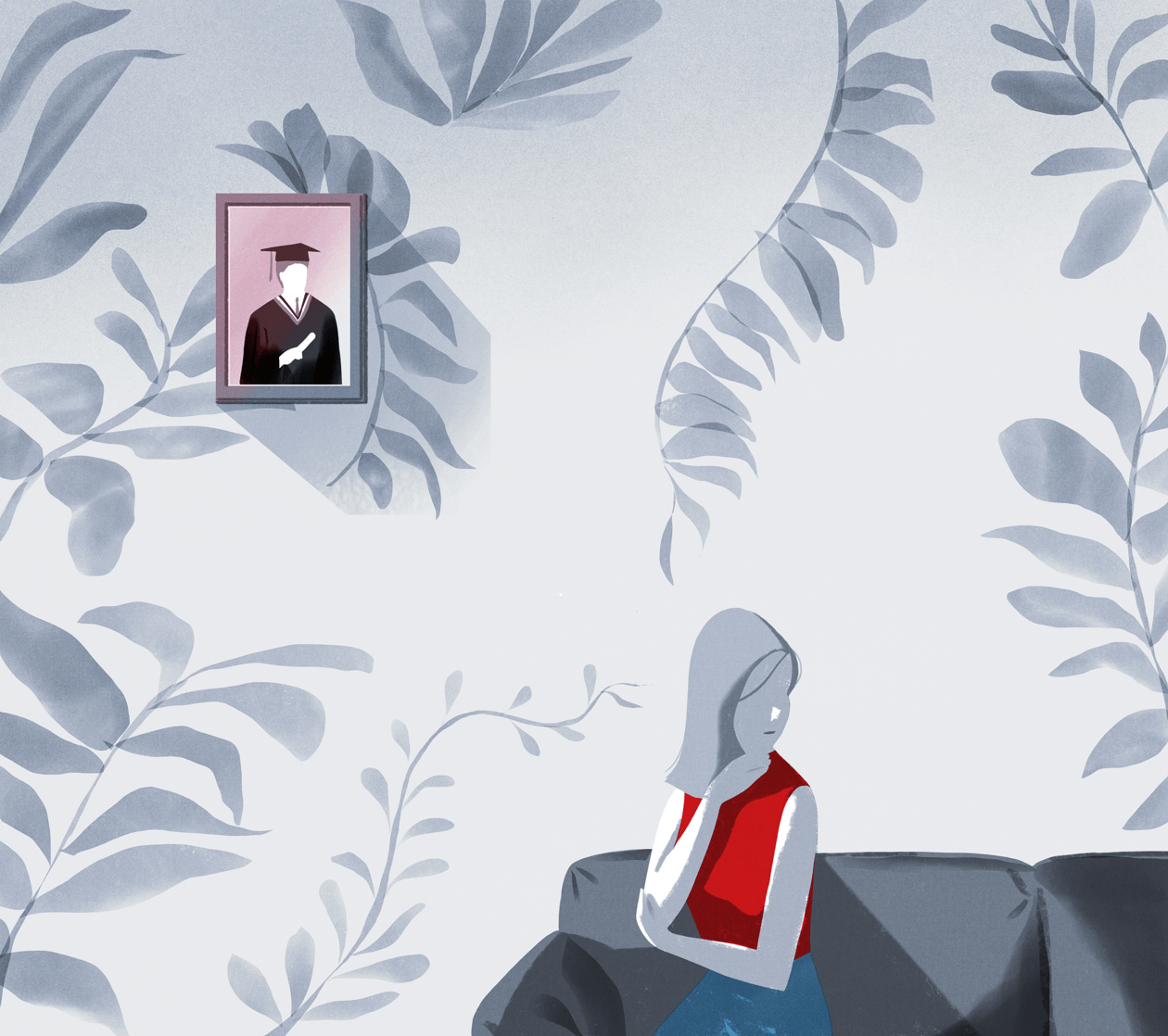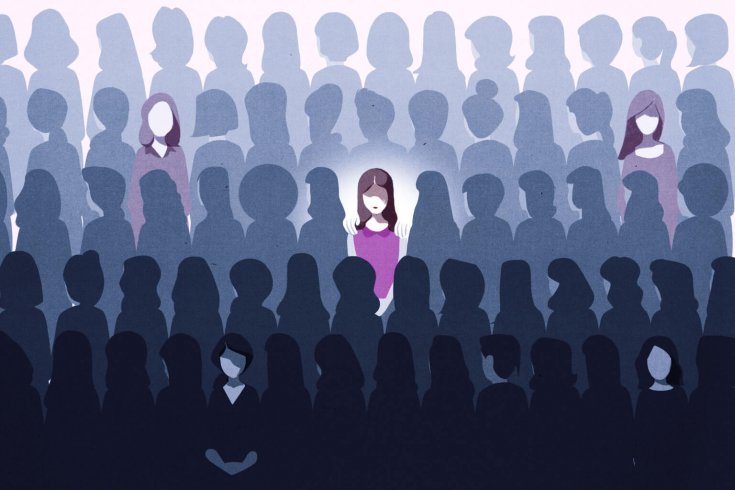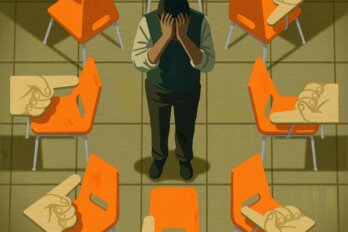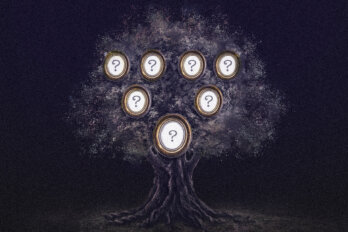An estimated 460,000 sexual assaults occur annually—1,260 every day, according to a 2004 survey from Statistics Canada. A later report estimates that for every 1,000 incidents, thirty-three are reported. In twelve of those instances, charges are laid. Six of those charges will lead to prosecution, and three will result in a conviction. Preparing a witness to testify in a sexual assault trial is an emotionally fraught process. “The starting point is to make sure that the survivor I’m working with knows that I believe her, that I understand the ways trauma affects memory,” says Pamela Cross, legal director of Luke’s Place, a non-profit based in Oshawa, Ontario, that provides counsel and support services to abused women and children. “It’s important to differentiate here between law and justice. To some survivors, the legal route can be satisfying regardless of the outcome,” says Cross, who, like many experts, thinks the system can be reformed to accommodate the particularities of sexual assault trials. “The system appears to be set up so that the interests of the Crown and complainant are merged. But from the complainant’s perspective, that’s really never been the case,” says Amanda Dale, executive director of the Barbra Schlifer Commemorative Clinic, a legal and counselling service in Toronto. A specialized court, where judges, lawyers, and witnesses all received training, could create a safer environment for survivors. “The Ghomeshi trial has brought a lot of these conversations to the surface,” Cross says.
Here, seven women describe what it felt like to testify against their assailants.
We met fourteen years ago at a Christmas party for his work. We spent a little time together—I remember him yanking my hair so hard one night I thought he’d tear it out of my scalp. Another time, he punched me several times on the side of my head. I thought it was just me, that I’d invited it somehow. Then I heard that twenty or so other women had come forward.
When I went in to give my statement, I thought it was step one of a process. I didn’t know it would be the statement they would use in court. I didn’t realize the information I reported to police wasn’t confidential. When the accused gets arrested, he gets his rights read to him. It’s not the same for victims.
Before the first day of the trial, I didn’t sleep. I lay in bed, looking at the wall, looking at the ceiling. The unmarked police car came, and I thought, Oh, are you here already? I didn’t eat. I brought a salad with me. I had packed all these nuts as snacks. I didn’t touch any food. My stomach was in knots. I was just so thirsty. I think it was a stress response—I’ve never been that thirsty in my life. I’m still thirsty.
After he was acquitted, I shut down. I stayed in bed for two days. I needed quiet.
I had an idea during the trial to make a website with resources for other victims, to tell them all the things I wish I’d known. I had help, legal counsel, and I wasn’t good on the stand. Can you imagine people who have no help? Now I sit and watch the messages come in. One woman said something like, Oh, I just take my punches and keep going.
In the end, I didn’t care if he went to jail. I just wanted them to acknowledge and validate that this happened to me. Maybe he could have apologized or something.
—Linda Christina Redgrave
*
It was 8 p.m. one winter night in Yellowknife, and I was walking down a residential street to meet a friend. I was dead sober. I remember it was snowing. A man ran up behind me. At first, I thought it was a joke, a friend pulling a prank, saying hello. I felt an arm wrap around my throat and heard an unfamiliar voice ask me, Do you want to die? I started blacking out. He shoved his hands down my pants.
I’m not sure how, but I struggled, and fell to my knees, before two men came running out of a nearby house and chased him away. I stood up, and realized I didn’t know the number for the police. It’s not 911 in the North, it’s something else. I called a friend. I looked down, and saw the impressions my knees had made, snow askew. Minutes later, I remember the street was filled with RCMP cars.
I surrendered control of my story, of my life, that day. In the year that followed, I struggled to get information from the lawyers. I felt like I was bothering them every time I asked about it. I cooperated with the RCMP, but didn’t want them showing up to my work or my house—Yellowknife is a small town. They showed up to my home anyway. Still, I was all in. When he attacked me, he’d been out on bail for attacking someone else. I wanted to move forward. I wanted to testify.
The day of the trial, my sister flew up. I don’t remember what I did that day. I think a friend suggested getting food before we went to the courthouse. I didn’t want to. I was dreading having to tell a room full of strangers about what happened. Inexplicably, I felt stupid that it happened at all. We arrived at the courthouse and were shown into a small, windowless room. I reviewed my statement. My heart started to race. I felt weighed down, flushed. When the court worker appeared at the door, I thought, This is it. Here we go.
You don’t have to testify, he said. My attacker pleaded guilty.
In that moment, I was so angry. I’d been thinking about this, mentally preparing, for months. I was deflated. That process of constantly waiting and getting my hopes up and down, trying so hard to keep it a secret. It didn’t matter that he pleaded guilty and received a sentence. I stopped walking by myself at night—never again. My parents helped me buy a car, so I didn’t have to feel as scared. I didn’t want to see anyone or talk to anyone.
I left Yellowknife a few months later. He was still in jail at the time. But when he was released, he broke into the house next door to where I’d been living. We left our door unlocked all the time.
For two years, I felt like I was going crazy. Nothing made me feel any sort of justice. If I had had a choice whether to be a witness or not, I would not do it. Having something horrible that’s happened to you picked apart and laid bare in such a way, it’s not something I’d ever want anyone to do. When I hear people say other witnesses are making it up or they’re doing it for fame, I don’t understand that. Knowing what it’s like to potentially testify—no one would ever choose that.
—Name withheld

The second time he strangled me, I knew I had to call the police. We’d been together for two years—we lived together, we’d looked at engagement rings—but I knew this time was different. He’d tried to drag me out of a car before, pushed me up against walls. The emotional abuse had been going on for almost two years. But I knew that domestic strangulation is a really high predictor for domestic homicide. But that Thursday night, his hands around my neck, there was a moment when I thought, he hasn’t stopped yet and I don’t know why. I went into survival mode, played dead. I was getting dizzy, let my body go limp, stopped moving. He squeezed harder. And it was then that I realized I could die. Finally, he stopped. I covered it with makeup, put my hair down, and went to my night class.
Before he went to the station to surrender, he came back to our house to pack up some things. He was calm. I’m not going to hurt you, he said. Just tell me what you told the police. I needed so badly for things to be okay. I helped him pack. I sent him to the station with food.
When I testified, my hands were shaking so hard I couldn’t drink the water from the cup I was holding, water spilling over its edges. He stared at me the whole time. My friend heard his mother whisper to his father, But there were no pictures of it. It was true—I hadn’t taken photos of the swelling.
I expected the acquittal. I know how these things work. I knew there probably wasn’t enough evidence to convict. I was so afraid of him. I am afraid of him. He had to see me bear witness in a courtroom in front of his friends and his family. Even if the justice system wasn’t going to take his liberty from him, he still had to sit in front of a judge to listen to what I said happened. Testifying empowered me.
The next day, I went to school and everyone was watching me, like I was in a fishbowl. A few people talked to me, but most just stared.
So many people don’t know how to talk to you after. They err on the side of not saying anything at all.
As more and more members of our community started to find out what happened, I was surprised by the kindness I was afforded. I’d been isolated for so long. Classmates began to invite me to things, potlucks and girls’ nights. Or text me to say hi. Or approach me in school without standing awkwardly and not knowing what to say. They treated me like just another friend. It was so meaningful. It still is.
Now, I stick up for myself in ways I didn’t know how to before. I don’t make excuses for other people anymore. When I talk about what happened, I’ve stopped saying, But his childhood was so sad. He was violent. And it’s awful. And I’m getting better, and moving on.
—Name withheld
*
It started when I was five years old. He was eight years older than me, my next-door neighbour. He babysat me after school. It would always happen at his house, in the basement. We’d make forts out of mattresses and cardboard boxes. It would happen in there. It went on for five years.
When I was sixteen, I went blind. It changed everything about my life. I hadn’t ever told anyone before, about the abuse, but as I met with my psychiatrist more often, I decided to tell her. Before my doctors determined that it was biological, they thought I lost my vision from the trauma. Because I was only seventeen, I was told I had no choice but to press charges. My psychiatrist sold it to me like I’d be saving other children, or maybe this would give me closure. I took a leap. It was the doctors who called my parents. I couldn’t tell them what happened.
Within a month of charges being laid, we decided to sell our house. He was still living next door, and his father would come knock on our front door regularly, to try to intimidate me and my parents into dropping the charges. I was scared to go home, scared to be seen on the street, scared to answer the front door or pick up the telephone. I was blind. I was a prisoner in my own home. When we moved across the city, we de-listed our telephone number, and installed a security system.
A year after charges were laid, we went to trial. They told me testifying would take an hour. It took four. I remember the defence suggesting that I’d enjoyed it, that at five years old I’d put myself in that situation. That I’d liked it. Why didn’t I say anything? Why didn’t I stop it?
I wasn’t allowed to see my mom, because she was also called to testify in the case. My dad stood quiet at the back of the room, watching me crying on the stand.
We were told testimony would continue again in three or four months, and we were sent home. We sat down for dinner, the three of us, and my mom started to cry. A couple of days later, the Crown attorney came back to me and asked if I’d consider a lesser charge of sexual assault, instead of sexual misconduct with a minor. Knowing I’d have to testify again if I said no, I took the deal. I was done. He had won. I felt like I had failed, because I didn’t have the strength to go back. I felt weak.
I have a lot of trouble with men and authority figures now. I don’t feel safe in those situations. I feel sick to my stomach. I shake. I get really cold. If it’s really bad, I have a panic attack. For a while, I was a little bit obsessed about where he was and what he was doing, so I could make sure I was as far away as possible. Over the last couple of years, that’s gone away. Now, I talk to high school students about my experience. It’s easier to tell a room full of students from a stage than it is to tell my closest friends. Most of them don’t know.
I’m still in counselling and probably will be for the rest of my life. And I don’t necessarily want kids, but I do want to find a partner to go through life with. I’ve never had a serious relationship. I’m starting to look for those things.
—Name withheld
*
I was in university, talking to a guy online. We made plans; he’d come in to the city to see me, but I knew pretty quickly I wasn’t into him. I was feeling awkward about that. He made a move, I said no, he made a move, I said no. He held me down and my brain just froze. I couldn’t stop him. It didn’t stop until my housemate heard me yelling and interrupted, running into the room.
I stayed up all night to try to figure out what to do. I did nothing.
Months later, I heard through mutual friends that another girl was testifying against him in court. They’d been studying together in the library, no flirtation, no anything. He just pounced.
She asked if I would report what happened to me, and testify in the case. I was beginning a career in health advocacy at the time, and I gave a lot of thought to how assault victims are treated in the media and in court. I said no.
I remember feeling like “innocent until proven guilty” wasn’t true for the victims of these crimes. We are set up as guilty until proven innocent. I couldn’t go to court to hear the verdict, it was too hard. The girl texted me to let me know they’d let him go, though. I was crushed.
Lots of people asked me, don’t you feel like a bad feminist? How could you leave her to do it alone? He was found not guilty, but I have pangs of guilt. If I had chosen to take that chance, and compromised the other advocacy work I was doing, could I have changed the fate of it? I don’t know.
—Aliçia Raimundo
*
My friend who’d walked me over to the house had a bad feeling about the guy standing out front with his dog. But I’d been chatting with him online, seen him around. Kingston is a small place. I’m a big girl, I told my friend. I can handle this. I was sixteen.
When he owned up to lying about his age—not eighteen, but almost twenty—I knew something was wrong, but I felt frozen. I said I had to go, but he said, you still owe me a movie. He put on Catwoman, with Halle Berry. I sat on one end of the couch. Why are you all the way over there? he asked. I think you’d be more comfortable over here.
I finally got away when a cleaning lady interrupted us.
A year later, I saw his graduation photo on the front page of the newspaper as I stood beside the till in the grocery store where I worked as a cashier. He’d been charged in a child pornography case. I vomited on the floor—it was the same photo I’d stared at on the wall while he was sexually assaulting me. No rape kit, but I remembered the scratches.
My boss sent me home, and I went to my boyfriend’s house, as I wasn’t on speaking terms with my parents at the time and my grandmother had told me to keep the assault a secret. His dad worked for Kingston police, and got on the phone right away.
I found out my attacker had been accused of coercing more than 100 young girls to film sex acts on their webcams, but I was the first victim who’d said she’d been touched in real life. I wanted to testify, to get up on the stand and say, I might be a kid, but you need to believe me.
I went to court alone to read my victim impact statement. His head was down the entire time I read it. Afterwards, they told me he’d taken a plea bargain, that there wasn’t enough evidence to convict him for sexual assault. I learned later that he was convicted on ten other charges. But that day, death seemed a lot easier than what I was dealing with.
That was eleven years ago and my life is still a roller coaster. I’m a bartender and I work in a restaurant. I live with my five-year-old daughter. And I know that one day I’ll have to talk to her about this, I’ll have to tell her, This is what happens sometimes, when you think you can trust someone. Her dad didn’t want me to tell her, but I think it’s important. She should know. This is what can happen.
—Alycha Reda
*
I was halfway through a degree in social work at Ryerson University in Toronto when my modelling career really started to take off. Between that and working at the restaurant, I decided to put school on hold for a semester, to focus. One night there was an industry party, and I wasn’t much into partying at the time, but I figured, I never socialize with my co-workers, so I went. I was wearing the most beautiful white dress—holy crap, was it ever gorgeous. I loved it. I showed up, found my friends, had a glass and a half of wine, and felt the world turn. A glass and a half, that’s a sneeze, I thought. How did I get this drunk?
The next thing I remember, I was in somebody’s car. A man I didn’t know wouldn’t let me out. He wouldn’t tell me where we were, where we were going. He took me somewhere I didn’t recognize and I was passing in and out of consciousness and my gorgeous white dress was in a heap on the floor. People have ideas about women and escape from unsafe situations, but I was on drugs and in heels and a tiny dress and it was the middle of January. So I let him drive me home.
When the police officer first showed up, I said I hadn’t been sexually assaulted. I was confused, and scared, and there was a man with a gun standing in front of me. A few weeks later, as my job performance started suffering, I told my boss I couldn’t come to work anymore. He suggested we go back to the party venue, to see if we could identify the man, though my memory of his face was hazy. We got there, and a man with a mole on his face walked by, and I recognized him right away. I threw up.
It took two years for the case to go to trial. I knew anything I did could be subpoenaed by the defence, in order to undermine my credibility. 730 days. They didn’t want to charge him with forcible confinement or drugging, so I wouldn’t have to take the stand for as long.
The last day of the trial, I couldn’t go. I didn’t want to see him. I knew things weren’t looking good for me. I didn’t get a rape kit. There had been no toxicology screening. I’d taken a pummelling on the stand. My dad had come to my house to pick me up when I got the call. I was sitting on the red couch in my apartment. I hung up the phone and said, Holy shit. He was found guilty. I cried. I remember my dad’s eyes widening. We hugged. And then we went and had dinner with my mom.
I woke up with a different brain than the one I’d had before this happened. I’m trying to build an identity that isn’t based on victimhood. I now need so much self-care it starts to feel sickening. I’m a prescription marijuana user now. Sleep is crucial. I have a strong relationship with my family, with my partner. I started school again. I’ve started doing presentations for the provincial government on sexual violence.
I understand why people don’t want to talk. It’s so scary. But faces and voices, they resonate. We all have a name.
—Jennifer-Leigh O’Neill
A version of this article appeared in the June 2016 issue.





